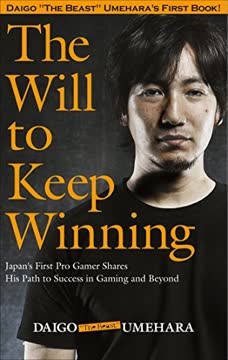Key Takeaways
1. Persistence is the Foundation of Success
By never giving up.
Unwavering determination. Daigo's journey, from an isolated child finding solace in games to a world champion, was fueled by sheer persistence. Despite lacking self-confidence and facing criticism for his passion, he refused to quit, pouring immense effort into gaming. This relentless drive, honed through childhood challenges like holding his breath longer than anyone else, became his greatest strength.
Effort builds confidence. While not initially confident in gaming itself, Daigo found self-assurance in his approach and consistent effort. He committed to outworking everyone, believing that persistence could overcome natural ability. This dedication, rather than innate talent, was the source of his confidence and allowed him to overcome feelings of intimidation and humiliation.
The will to challenge. His ability to take on challenges and see them through to the end, regardless of difficulty or external doubt, is what set him apart. This "will to challenge adversity" was invaluable for someone grappling with childhood insecurities. It allowed him to devote himself entirely to gaming and eventually reach the elite ranks.
2. Effort Trumps Natural Talent
Dad would always tell me that the path to achieving great things was through hard work, that effort always trumped natural ability.
Lessons from family. Growing up, Daigo witnessed his sister's effortless academic brilliance, which initially made him doubt his father's teaching that effort beats talent. However, his struggle to memorize the Japanese Constitution's Preamble, a task his sister mastered quickly, solidified his belief that extraordinary effort was his only path to compete with natural talent. This experience taught him to approach everything with intense dedication.
Back-breaking work. He concluded that overcoming those with innate talent required "back-breaking levels of hard work." This meant playing games as if his life depended on it, sacrificing time and health in pursuit of victory. He refused to lose, seeing persistence as the only way to avoid feeling inferior to naturally gifted individuals.
Outlasting the competition. While others might have found games easier initially, few could match Daigo's persistence. He believed that by simply outlasting everyone else, he could eventually win. This mindset, born from childhood experiences and reinforced by his sister's talent, became a core principle of his competitive approach.
3. Focus on Sustainable Growth, Not Just Winning
While seemingly similar, I want to show you that these are highly different goals, to the point where they can be at odds with one another.
Winning vs. Keep Winning. Daigo distinguishes sharply between winning a single event and consistently producing results over the long term. Fixating solely on winning can narrow your focus, restrict your options, and lead to conventional, safe strategies. True, sustained success requires a different mindset focused on continuous improvement.
Process over outcome. Overly focusing on tournament outcomes or external validation (like cheers or awards) makes your motivation fragile and dependent on external factors. Luck plays a role in results, making them unreliable indicators of true strength or progress. Instead, deriving joy from the daily process of learning and improving provides a stable, internal source of motivation.
Sustainable effort levels. Daigo learned the hard way, by pushing himself to physical and mental breakdown for a fourth championship win, that reckless devotion is not productive effort. Sustainable growth requires finding a moderate level of daily practice that can be maintained for years, like aiming for a "happiness level of sixty" in daily practice rather than one hundred from a win.
4. Embrace Change and Challenge Your Weaknesses
Growth Implies Change
Constant evolution. Daigo believes that in competitive fields, there is no growth without change. Staying the same person or player as the day before means you are not growing. This requires constantly striving to change yourself, breaking out of your shell, and trying new things, even if they are unsettling or don't immediately lead to victory.
Confronting discomfort. Challenging weaknesses is essential for evolution. This includes not only in-game tactics but also personal aspects, like associating with people you dislike or facing situations you fear. Avoiding disagreeable people or challenging stronger opponents limits your potential for growth and keeps you stuck within your comfort zone.
Failure as direction. If a change doesn't work, you simply change again. Failure indicates that the right way lies in a different direction. The accumulated effect of small, daily changes builds the capacity for bigger, more difficult, but ultimately more rewarding changes later on. This continuous cycle of challenging, changing, and learning from results is key to long-term strength.
5. Ignore Outside Opinions and Trust Your Intuition
Outside Opinions Don't Matter
Freedom from judgment. Being overly concerned with what others think is suffocating and prevents you from being yourself. While basic manners are important, opinions that don't impact your life should be ignored. This includes fear of being seen as desperate for trying hard or a failure for losing.
Inner conviction. Persistence allows you to ignore criticism. If you are giving your all and still not producing results, external criticism can easily make you cave to pressure. However, those with true persistence can press on in their own world, oblivious to others' evaluations, because their motivation comes from within.
Intuition as a guide. Trusting your intuition, especially after putting in significant effort and gaining experience, is crucial for moving beyond conventional strength. Acting on a feeling, even if it defies logic or theory, is essential for discovering unique approaches and feeling truly alive in your pursuits. This requires courage and faith in your own judgment.
6. Learn Relentlessly from Failure and Keep Thinking
Thomas Edison, responsible for upward of thirteen hundred inventions in his lifetime, said that those who fail to succeed are those who fail to think.
Analyzing defeat. Daigo's unwavering confidence comes from intently thinking about why he lost after countless mistakes and failures. He doesn't make excuses or blame external factors. Instead, he considers the facts, analyzes them, and uses failures as indicators of where he needs to improve.
The power of contemplation. Thinking deeply about issues, discarding preconceived notions, and investigating problems from every angle is essential for finding solutions. When stuck, pushing the issue to the back of your mind allows your subconscious to work, often leading to insights from unexpected sources. This habit of deep thinking builds confidence and allows for quicker problem-solving under pressure.
Note everything. Small concerns or observations that pop up throughout the day, whether in games or life, should be noted immediately. Ignoring them means they will likely come back to bite you later. Capturing these thoughts allows you to address issues even after time has passed and prevents underestimating seemingly minor opponents or problems.
7. Seek Intense Competition for True Growth
I make it a point to play the game that is most popular at the time.
The draw of the forefront. Daigo intentionally chooses the most competitive games because they attract the strongest players and offer the highest level of challenge. This intense competition is an irresistible draw for someone focused on self-development. Playing against the best constantly pushes him to improve.
Avoiding comfort zones. Choosing less popular games or niche markets might offer easier wins or titles, but it limits growth. Constraining yourself to a small field prevents breaking new ground and exposes you to less intense competition, which can lead to the deterioration of your ability to keep winning.
Opportunities for discovery. New, popular games are seen as opportunities for self-discovery and growth. While it means frequently starting over and facing the pain of losing initially, the challenge of competing on the big stage where everyone is focused is necessary to stay at the top of your field and keep up with trends.
8. Develop Skill Beyond Imitation
Skill exceeding ten can't be taught, and it can't be imitated.
Beyond conventional strength. Reaching a certain level of skill (likened to 'ten') is achievable by following established methods and imitating others. However, true mastery ('eleven or higher') is on a different plane. It's a strength that others can sense but cannot pinpoint or replicate. This is the level that inspires awe and makes a player truly formidable.
The result of deep exploration. This ultimate strength is not about specific techniques or methodologies but about the depth of your approach and how far you are willing to go in exploring every option. It comes from working harder than anyone else to understand the true essence of the game, independent of easy or trendy strategies.
Unwavering confidence. Attaining skill beyond imitation provides an absolute, unwavering sense of confidence. Knowing that your strength is based on your own painstaking effort and cannot be easily copied makes you resilient to imitation and external validation. The ability to make new discoveries is more valuable than the discoveries themselves.
9. Find Joy in Daily Progress, Not Just Outcomes
Big discoveries in my daily efforts make me far happier than winning World Championships.
Internal satisfaction. While winning is better than losing, the joy derived from a tournament victory is fleeting and less significant to Daigo than the satisfaction of making small discoveries in his daily practice. These internal realizations, even if no one else understands them, provide a consistent source of motivation and happiness.
Mental armor. By focusing on self-improvement rather than outcomes, Daigo develops a mental armor against the emotional swings of wins and losses. Defeats are seen as valuable opportunities to identify weaknesses and grow, rather than reasons for despair. His greatest opponent is himself, not the person across the screen.
The value of the process. The purpose of matches and daily practice is self-improvement. Learning something from a match, regardless of the result, makes it a good outcome. This perspective allows him to play daringly in risky situations, unburdened by the fear of losing, because his happiness is rooted in the continuous process of becoming better.
10. There Are No Shortcuts to Lasting Strength
While they might mean well, the truth is that there are no shortcuts.
The hard road. Achieving significant, lasting strength requires choosing the difficult path. Relying on easy-to-follow online strategies or convenient moves might provide temporary wins but limits growth and leaves you vulnerable when those methods fail. True mastery comes from exploring every option yourself, even the seemingly unpromising ones.
Overcoming adversity. Building confidence and overcoming shortcomings requires experiencing hardship. Dodging issues or taking the safe route limits potential. Hammering through failures and confronting barriers is vastly more effective for progress, even though it's not easy and may involve ridicule from those focused on short-term results.
Commitment to the craft. Shunning the easy path is not done on a whim but out of deep devotion to the pursuit. If your passion is strong enough, you won't be satisfied with being merely average or winning in a way that compromises your individuality. This commitment provides the conviction to keep searching for new ways and push beyond the limits of conventional approaches.
Last updated:
FAQ
1. What’s The Will to Keep Winning by Daigo Umehara about?
- Personal journey of a champion: The book is an autobiographical account of Daigo Umehara’s rise from a lonely, game-obsessed child to a world-renowned professional fighting game player.
- Philosophy of sustained success: Umehara explores the difference between winning once and consistently staying at the top, emphasizing the mindset and habits required for long-term achievement.
- Lessons beyond gaming: While rooted in the world of competitive fighting games, the book draws parallels to broader life challenges, offering insights applicable to any field or pursuit.
- Themes of growth and resilience: The narrative covers Umehara’s struggles, setbacks, and comebacks, focusing on persistence, self-improvement, and the will to keep evolving.
2. Why should I read The Will to Keep Winning by Daigo Umehara?
- Unique perspective on mastery: The book provides a rare, inside look at the mindset of one of the most successful eSports competitors, with lessons that transcend gaming.
- Applicable life advice: Umehara’s reflections on effort, failure, and growth are relevant to anyone seeking to improve in their own field, not just gamers.
- Candid and relatable storytelling: Umehara shares his vulnerabilities, doubts, and personal growth, making the book accessible and inspiring for readers from all backgrounds.
- Insight into eSports culture: Readers gain an understanding of the evolution of professional gaming and the challenges faced by early pioneers like Umehara.
3. What are the key takeaways from The Will to Keep Winning by Daigo Umehara?
- Persistence over talent: Umehara emphasizes that relentless effort and the willingness to keep challenging oneself are more important than innate ability.
- Growth as the true goal: He argues that focusing on continuous personal development, rather than just winning, leads to more sustainable success and fulfillment.
- Quality over quantity: The book stresses the importance of meaningful, focused practice rather than simply putting in long hours.
- Embrace change and failure: Umehara encourages readers to seek out new challenges, learn from mistakes, and avoid complacency to keep evolving.
4. How did Daigo Umehara become a world champion, according to The Will to Keep Winning?
- Early passion for games: Inspired by his older sister, Umehara developed a deep love for video games from a young age, dedicating countless hours to practice.
- Overcoming isolation and doubt: Despite feeling like an outsider and facing societal criticism, he persisted in his pursuit, using gaming as a source of confidence and self-expression.
- Relentless hard work: Umehara out-practiced his competition, often playing far more than others and constantly analyzing his own play to improve.
- Learning from setbacks: He faced significant defeats and periods of burnout, but used these experiences to refine his approach and return stronger.
5. What is Daigo Umehara’s philosophy on winning and sustained success in The Will to Keep Winning?
- Winning vs. keeping winning: Umehara distinguishes between achieving a single victory and maintaining excellence over time, noting that the latter requires a different mindset.
- Letting go of results: He believes that being overly fixated on winning can actually hinder long-term success; instead, focusing on growth and process is key.
- Continuous self-challenge: Umehara advocates for always seeking new ways to improve, even after reaching the top, to avoid stagnation.
- Embracing discomfort: He stresses the importance of confronting weaknesses, making changes, and not shying away from difficult or unfamiliar territory.
6. What are the most important methods and advice Daigo Umehara shares in The Will to Keep Winning?
- Set sustainable routines: Umehara recommends creating daily habits that are maintainable for years, rather than burning out with unsustainable effort.
- Focus on small, daily improvements: He suggests breaking big goals into manageable steps and celebrating incremental progress.
- Prioritize quality practice: Rather than maximizing hours, he emphasizes the value of focused, thoughtful training and reflection.
- Challenge conventional wisdom: Umehara encourages questioning accepted strategies and developing one’s own unique approach.
7. How does Daigo Umehara handle failure and setbacks, as described in The Will to Keep Winning?
- View failure as growth: Umehara sees mistakes and losses as essential opportunities for learning and self-improvement.
- Avoid self-pity and blame: He resists the urge to make excuses or dwell on bad luck, instead analyzing what he can control and change.
- Resilience through adversity: Even at his lowest points—such as quitting games and mahjong—he eventually found ways to rebuild his confidence and return stronger.
- Embrace discomfort: Umehara believes that confronting and working through failure is necessary for real progress.
8. What does Daigo Umehara say about effort, practice, and routine in The Will to Keep Winning?
- Effort must be sustainable: He warns against overworking to the point of exhaustion, advocating for routines that can be maintained for a decade or more.
- Quality over quantity: Umehara values meaningful, focused practice sessions over sheer volume of hours.
- Daily consistency: He practices nearly every day of the year, but also allows for moderation and flexibility to avoid burnout.
- Routine with balance: While routines are important, he cautions against rigidity, suggesting that socializing and rest are also vital for long-term success.
9. How does Daigo Umehara approach competition, strategy, and innovation in The Will to Keep Winning?
- Seek uncharted territory: Umehara strives to go beyond conventional strategies, always searching for new techniques and approaches.
- Don’t rely on easy wins: He avoids overusing popular or “cheap” tactics, preferring to develop skills that can’t be easily imitated.
- Continuous adaptation: He believes that growth requires constant change, both in gameplay and personal mindset.
- Focus on the most competitive arenas: Umehara chooses to play the most popular and challenging games, seeking out the strongest opponents to push his limits.
10. What are some specific concepts or definitions introduced in The Will to Keep Winning?
- “Happiness of sixty”: Umehara describes aiming for a moderate, sustainable level of satisfaction (rather than extreme highs or lows) to maintain motivation and balance.
- Distinguishing goals and objectives: He differentiates between long-term goals (like personal growth) and short-term objectives (like winning a tournament), warning against confusing the two.
- Skill beyond “ten”: Umehara uses “ten” as a metaphor for conventional mastery, arguing that true greatness lies in pushing beyond what can be taught or imitated.
- Persistence as a core value: He defines his greatest strength as the will to keep challenging himself, regardless of setbacks or external validation.
11. What are the best quotes from The Will to Keep Winning and what do they mean?
- “You must understand that there is more than one path to the top of the mountain.” (Miyamoto Musashi, quoted in the book) – Emphasizes that success can be achieved through various approaches, not just one prescribed method.
- “I don't just want to win, I want to keep winning, to stay on top of my game.” – Highlights the book’s central theme of sustained excellence over fleeting victory.
- “If you're fixated on winning, you'll be incapable of doing so consistently.” – Warns that obsession with results can undermine long-term performance.
- “The only way I can succeed is through persistence and hard work.” – Underscores Umehara’s belief in effort and resilience as the foundation of his achievements.
12. How can the lessons from The Will to Keep Winning by Daigo Umehara be applied outside of gaming?
- Universal principles of growth: The book’s advice on persistence, embracing failure, and focusing on self-improvement applies to any field—sports, business, art, or personal development.
- Building sustainable habits: Umehara’s emphasis on routines, moderation, and incremental progress is relevant for anyone seeking long-term success.
- Overcoming societal expectations: His journey encourages readers to pursue their passions despite external criticism or lack of understanding.
- Adapting to change: The mindset of continuous learning, innovation, and challenging the status quo is valuable in rapidly evolving industries and life situations.
Review Summary
The Will to Keep Winning receives mostly positive reviews, with readers praising its motivational content and insights into Daigo's mindset. Many appreciate the book's lessons on perseverance, continuous improvement, and finding passion. Some readers find it repetitive or lacking depth in certain areas. The book is seen as particularly valuable for those interested in competitive gaming or e-sports, though its messages are considered applicable to various aspects of life. Critics note that the writing style can be simple and the translation occasionally awkward.
Similar Books
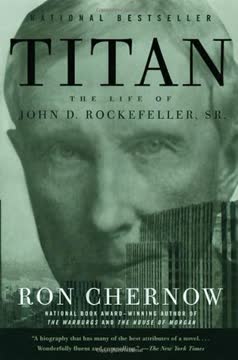

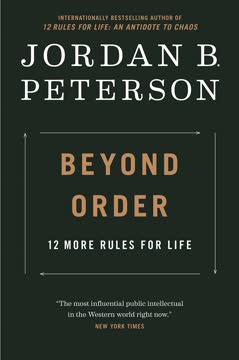
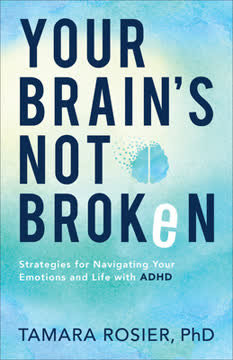

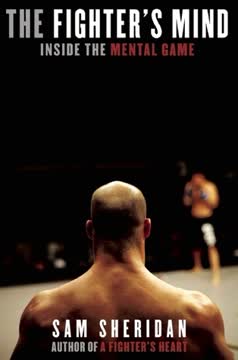
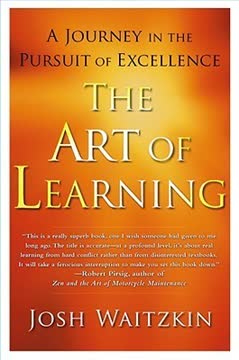
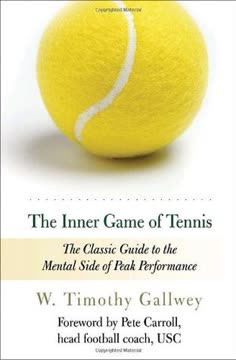
Download PDF
Download EPUB
.epub digital book format is ideal for reading ebooks on phones, tablets, and e-readers.
